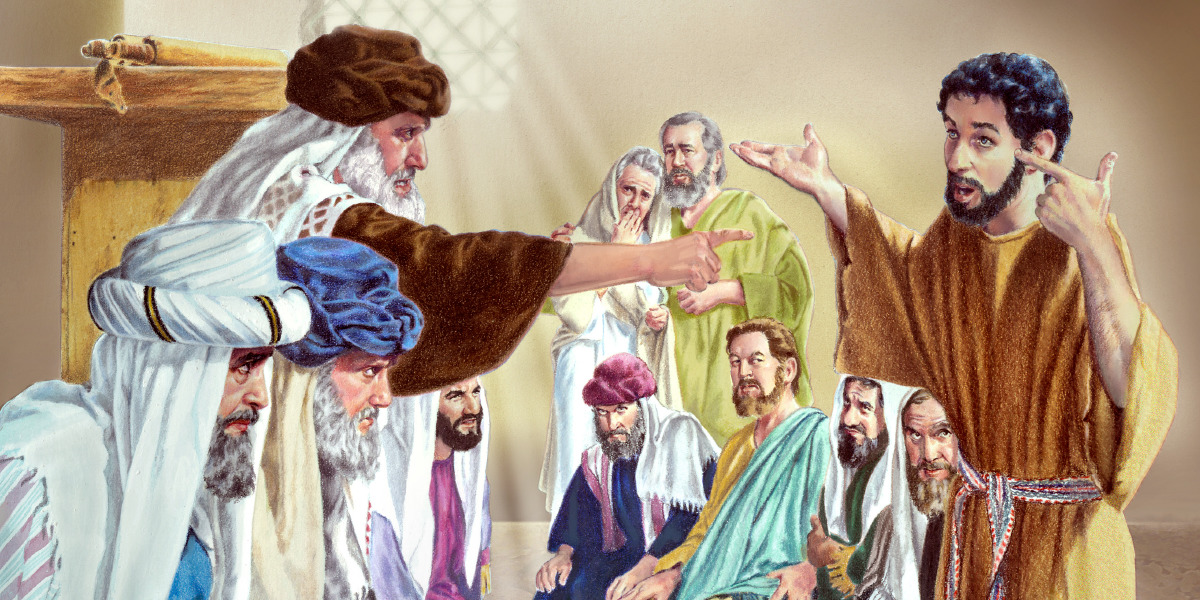John 9:39-41.
And Jesus said, For judgment I am come into this world, that they which see not might see; and that they which see might be made blind.
And some of the Pharisees which were with Him heard these words, and said unto Him, Are we blind also?
Jesus said unto them, If ye were blind, ye should have no sin: but now ye say, We see; therefore your sin remaineth.

Was Jesus speaking in riddles here, as the story of the healed blind man comes to an end?
It may seem so at first glance, but we need to take a broader look at the gospel message. He came that all men might have access to salvation and eternity in heaven. But, in preparation for that event, He knew that people would be divided over Him before He ever came to the Cross.
And they were divided, almost from the moment He was born. His legitimacy was questioned. His sanity was questioned. His claims of deity were questioned. Even the miracles He performed in plain sight of multitudes were questioned. The human mind wants to explain things to fit our own understanding. If we can do that, then it’s not so much a miracle as it is a perfect conjunction of events at just the right moment. If you stop to think about that, you’ll quickly see that such would be a miracle in itself 🙂
What Jesus was saying here is that His coming would mark a great divide among mankind. A judgment, if you will.
In America, we have the Great Continental Divide. On the eastern side, most rivers and waterways flow to the east and south. On the western side, they flow to the west and south. There are a very few exceptions, which is an interesting matter of geography. But that divide clearly exists, just as the divide existed then, and still does today, between those who see clearly Who Jesus was, and those who do not–or will not.
The Pharisees who heard His words asked, “Well, then, are we blind because we do not see You as God?” (My own paraphrase, and I wish I could convey to you in words the disdain and anger with which these men spoke. They were the “in” men, after all; the leaders, the rulers of the spiritual and day to day lives of the people. But–I believe that there were those among them who were having stirrings of awareness that Jesus was something with which they had never dealt before.
Jesus’ response was profound. Summed up, again in my own words, it was something like this: “If you deny that you are blind, and are not willing to see, then you will continue in your sin. But if you recognize your blindness, and have an awareness of your own sinful nature; if you are convicted and grieved by your sin, then you will receive spiritual sight. “
I love this quote from Charles Haddon Spurgeon: “We ought not to suffer any person to perish for lack of knowing the gospel. We cannot give men eyes, but we can give them light.”
Jesus is the Light of the World!








